- Home
- Linda Newbery
Flightsend Page 11
Flightsend Read online
Page 11
‘He’ll get on with them once the school term finishes,’ Dan told Charlie.
She was annoyed with herself for feeling a definite rush of pleasure at this news; she wasn’t sure that she hadn’t blushed. If Oliver was doing the brochure drawings, he’d be around at Nightingales without tutoring responsibilities. She had no intention of getting a stupid crush on him, just because he praised her work, but nevertheless she felt that something was missing this week, without him. And, if asked, she’d have known exactly how many days it was to his next weekend course.
She did a few sketches, including one of the rose arch he’d drawn; she went up to the airfield and drew the ash tree and the cross. At home, when her mother was occupied with the nursery, she worked on several drawings of Caspar. It was Kathy’s birthday on Saturday, and Charlie had the idea of getting one of the drawings framed and mounted for a present. Progress was difficult, as when Caspar wasn’t asleep he was full of twitchy movement. The only drawing she’d completed was of Caspar stretched flat out, asleep, but she knew there was something wrong with it. He was floating in mid-air, rather than lying firmly on the floor. Oliver would know how to put it right, but she wouldn’t be seeing him in time, before Saturday.
On Thursday evening she enticed Caspar up to her room, gave him one of his rubber toys to gnaw, and worked hard on a crayon drawing. She was pleased with the result. It was a head-and-front-paws portrait, catching Caspar’s endearing way of lying with his front legs crossed as he held the toy against his chest. She perfected his eyebrows, the worried expression in his eyes, and spent some time working on the texture of his fur. When she’d finished, she rolled the picture, with a spare sheet for protection, into a cardboard tube and put it into her rucksack for tomorrow. The leavers’ business would be over by lunchtime, and there’d be plenty of time to go into town.
With her school routine broken by study leave, it felt strange to be standing by the village hall with the few other students from the village who travelled in by bus. No more school uniform, either – the sixth form didn’t wear it. Rowan had phoned last night to ask Charlie what she’d be wearing.
‘Haven’t thought about it,’ Charlie told her.
‘Well, when are you going to think about it?’
‘In the morning, probably.’
Rowan, disbelieving, gave a long explanation of what she was thinking of wearing and why, then asked Charlie to come shopping after finishing at school. ‘I need some things for Tenerife.’ Charlie, who hadn’t seen Rowan since the party, agreed. She wanted to repair the friendship before the summer holidays began properly.
When the bus arrived, Angus David was sitting by himself in the back seat, deep in his copy of A Midsummer Night’s Dream.
‘Tarry, rash wanton! Am I not thy lord?’ he said sternly, as she approached.
‘Come on then. Let’s hear it.’
‘Thanks.’ He thrust the book at her. ‘This is awful. I can’t get these words to stick in my head and it’s the dress rehearsal on Sunday. The day after tomorrow. I’ll stand there stammering. I’ll be the first Oberon ever with a speech impediment.’
He looked particularly tough today, with hair newly stubbled, an American football shirt with a huge number 2 on it, and heavy boots. ‘I thought it was own clothes today,’ Charlie teased, ‘not fancy dress. Why have you come as Arnold Schwarzenegger?’
Angus tilted his head and looked at her sternly. ‘If you were due to appear before the entire school in green tights and a hip-length split tunic, you might want to establish your masculinity first.’ He took the book back and turned quickly through the pages to a place marked in yellow highlighter. ‘The beginning’s all right – here’s the part I get stuck on. Ready? You’re Puck, by the way. This is thy negligence: still thou mistak’st, Or else commit’st thy knaveries wilfully – Bad for the false teeth, that bit.’
In spite of his mock panic, he was almost word-perfect. ‘You must have been out first ball, in the cricket,’ Charlie said, ‘if you’ve had time to learn all this.’
‘I was not! I got a creditable eighteen runs, since you ask.’
There was a holiday atmosphere at school, and a certain smugness in standing outside talking to friends while rows of younger pupils could be seen, through the windows of the Maths block, having lessons as usual. The official leaving business was an anticlimax. They returned their textbooks, heard a dull and worthy address from the head of year eleven and the head teacher, had coffee and biscuits in the main hall, talked about holiday plans and what they’d do on results day. Some of the teachers came in to chat and to say goodbye. Charlie scanned the room for glimpses of either Oliver or Sean; seeing neither, she was half-disappointed, half-relieved.
Afterwards, in town, she made Rowan come to the art shop before being let loose in Monsoon and Oasis. The framing would normally take two or three days, the assistant told Charlie, but when she explained that the picture was for a present tomorrow he agreed to do it this afternoon. With no need to hurry, Charlie went into Rowan’s shop of choice, and watched her trying on a succession of skimpy tops, trousers and dresses.
‘What d’you think? Does this colour suit me? Russ would like this. Why don’t you get something, Charlie? I mean, you must need clothes, even for Nightingales.’
‘Clothes don’t suit me,’ Charlie said. The clingy vests and skirts Rowan liked might have been made for a different species. ‘I’d look like a weight-lifter in that dress.’
‘There are larger sizes,’ Rowan said helpfully. ‘What about this?’ She pulled out something from the rack of discarded garments at the changing room exit.
‘Ro, that’s a maternity dress. For an elephant. Either that or something made from a barrage balloon. I don’t need anything, thanks.’
Charlie was hungry again. It was no good looking at size 10 clothes; her body would always demand food and let her down. She’d resigned herself to that, but when Rowan made her wait about in changing rooms she developed an inferiority complex, seeing herself as a Great White Whale. She caught a glimpse in one of the many-angled mirrors, and shook out her hair: her fantastic pre-Raphaelite hair, as Mum described it, that people paid vast sums to imitate.
Rowan, posing with hands on hips, looked past her reflection at Charlie. ‘I’ve got an appointment at Shapers in half an hour,’ she said. ‘Why don’t you see if they can fit you in too?’
‘Oh, so there’s something wrong with my hair now?’ Charlie retorted. ‘And you didn’t tell me you were getting yours cut. What am I supposed to do, sit and watch?’
‘You could read the magazines.’
‘No thanks. I’ve got more shopping to do. I want to get some earrings for Mum, an extra birthday present.’
‘You didn’t say. I’d have helped you choose. Come and meet me outside Shapers afterwards.’
Rowan, laden by this time with three carrier-bags, went off to the hairdresser’s, and Charlie went to the market stall that sold the kind of ethnic jewellery her mother liked. She chose a pair of delicate silver earrings, browsed in the market for a while and was wondering whether to buy a sandwich when she saw Sean coming out of the outdoor shop.
‘Sean!’ she called.
He stopped, saw her, came over. ‘Charlie! Saw you in school this morning. How was it?’
‘Boring. What are you doing?’
‘Just bought myself a new compass for Snowdonia.’ He showed her. ‘And wasted time looking at all the outdoor gear I can’t afford. Actually, I’m here for the same reason as you, most likely.’
‘Waiting for Rowan to get her hair cut?’
‘Kathy’s birthday,’ he explained. ‘What are you getting her?’
Charlie told him about the drawing of Caspar and showed him the earrings. She felt anxious at the implication that he’d be bringing Mum a present, although he wasn’t carrying anything other than the compass. Maybe he’d bought jewellery, something small, that was in his pocket. ‘Are you coming over tomorrow?’ she asked, not wanting h
im rebuffed again. ‘I mean, she – well, it’s the village fête. She’ll be busy.’
She saw from the twist of his mouth that he understood. ‘No, it’s all right,’ he said. ‘I’m sending something. Don’t tell her, will you?’
‘Course not.’
Sean looked at his watch. ‘I’ve got half an hour, then double year nine this afternoon. Fancy a quick drink and a sandwich? I’m starving.’
‘Great!’
They went to The White Horse in the market square. It was noisy, packed with office-workers for someone’s leaving do.
‘Let’s sit outside,’ said Sean. ‘Can’t hear ourselves think in here.’
He bought drinks – Coke for Charlie, beer for himself – and led the way through to a garden set out with picnic tables. A barman brought the sandwiches they’d ordered. While they ate, Charlie told Sean about her drawings and her switch to Art, the surprise visit from Dietmar and the story of the wartime plane crash.
‘Is Kathy doing anything special for her birthday? Apart from the village fete?’ Sean asked.
‘She’s going out for dinner with Anne. She said I could go too, but I’ll be working.’
‘You said she was doing some work for Nightingales. How’s that going?’
‘Really well. They liked what she did, and now they’re asking for more plans. She enjoys it, too. Fay said she might even ask Mum to tutor some weekend courses on gardening.’
After a while Charlie noticed that she was doing nearly all the talking, with Sean saying little. He finished his beer but left part of his sandwich uneaten. She wondered if she’d said too much; made it sound as though her mother was having a marvellous time without him. Then she realized: it was almost exactly a year since Sean had moved out, a few days after Kathy’s thirty-seventh birthday. He must be thinking of that. The anniversary.
‘Have another drink?’ she asked. She could give him the money even if she couldn’t go to the bar and order it.
‘No, thanks, Charlie.’ He looked at his watch. ‘I ought to get going.’
They went outside. Sean said, ‘You know, it’s ridiculous. I hardly ever go out of school at lunchtime, and when I do I’m all on edge, watching the clock. Sorry. I wasn’t very good company.’
‘I’m glad I saw you, anyway,’ Charlie said.
‘Where are you going now?’
‘Back to the art shop.’
‘I’d love to see that picture some time,’ Sean said. ‘It sounds great. Well – have a good day tomorrow.’
They would part here: Charlie going to the art shop in the High Street, Sean back to school. He looked so wistful that when he moved towards the customary embrace, she gave him a big bear hug in return. He laughed. ‘Whoa, steady. What’s that for?’
‘You looked sad.’
‘Oh, not really. I’m OK. See you, Charleston.’
He set off at a jog. Charlie watched him go, then wandered along the High Street. She still had two hours to find a use for, as there was no way back to Lower Radbourne apart from the school bus.
It was only when she got home with the framed drawing wrapped in a parcel that she remembered Rowan, and their arrangement to meet outside the hairdresser’s.
Mum’s birthday last year, for all Sean’s and Charlie’s efforts, had been dismal.
It had been on a Friday. After school, Sean and Charlie cooked a surprise special meal; for Saturday they were planning a visit to Hidcote Manor, a National Trust garden Kathy particularly wanted to see.
None of it had gone right. Sean and Charlie didn’t have much cooking expertise between them and their choices were too ambitious. The chilli sauce was too hot, the rice turned out gluey and the soufflé didn’t rise properly. None of that would have mattered if there hadn’t been an item on the radio, just before the meal, about cot deaths. Had she heard it in time, Charlie would have switched to something lighthearted or put a CD on instead. As it was, she came out of the kitchen with a bundle of knives and forks and found her mother huddled in a corner, listening intently.
Charlie didn’t tell Sean, who was trying to rescue the rice, filling the kitchen with clouds of steam. As soon as Kathy went upstairs, Charlie turned off the radio and found a CD, but it was too late to salvage the evening. Kathy toyed with the food on her plate, hardly spoke, drank her wine half-heartedly. When Sean got up to make coffee, she said, ‘I don’t want any, thanks. I’ve got a headache. I think I’ll have an early night.’
Charlie and Sean cleared up in near-silence. Mum’s depression was like a virus, infecting all three of them. No amount of cheerful determination from Sean could hide the signs that his relationship with Kathy was foundering, and he could do nothing to save it. Charlie knew by now that adults might give all sorts of advice about problems and relationships, but that didn’t mean they could sort out their own lives. Putting away glasses, she came across the birthday cake Sean had hidden in the cupboard. They’d planned to bring it out with the coffee. The candles – pink and white, pathetic now – were already in place, a box of matches nearby.
‘Oh, the cake!’ Charlie exclaimed.
Sean shrugged. ‘Chuck it in the bin, for all I care. Drink your coffee, now I’ve made it.’
Tears stung Charlie’s eyes, welled up. She gulped at her coffee, which he’d made much stronger than she liked it. Then she remembered that Sean didn’t know about the radio item. Thinking it might help to explain her mother’s behaviour, she told him.
‘What?’ He stared at her. ‘Why didn’t you turn it off? Why didn’t you tell me?’
‘Didn’t want to spoil the whole evening.’
‘It’s spoiled all right, isn’t it? I’m going up to talk to her.’ He left the cooking dish he’d been scrubbing and went upstairs.
Charlie poured the rest of her coffee down the sink and finished tidying, leaving the dish to soak. Then she turned off the lights and went up, too. Getting ready for bed, she heard muttered words from the other bedroom: Sean’s voice, low and pleading; her mother’s, irritable at first, becoming angry. Finally, ‘Oh, leave me alone, please! Just leave me alone!’
Charlie heard Sean come out and go to the bathroom, then his footsteps going downstairs. The sofa creaked as he settled on it.
Wide awake by now and staring into the darkness, she thought of the nursery, perfect and untouched behind its closed door. There were three people in the house, sleepless and miserable, lying isolated in their separate rooms. It needed the tiny, absent fourth person to unite them. Without Rose, they were identical magnet poles, repelling each other.
Village Fête
Fay had asked Charlie to spend Saturday afternoon at Nightingales, serving refreshments for the village fête, but Charlie had already promised to help her mother. On Kathy’s birthday, Charlie wanted to be with her; she felt a duty to watch out for signs of disaster.
It was a beautiful, fresh morning. Charlie got up early to take her mother tea in bed before going round to Nightingales, but when she went downstairs she found Kathy already out on the lawn in her dressing-gown. She was looking at a clematis that had just come into flower.
‘Happy birthday, Mum.’ Charlie kissed her and gave her the mug of tea. ‘You’re invited to a presentation ceremony, to be held in the kitchen in five minutes.’
‘Thanks, Charlie. Look at this – clematis viticella Étoile Violette. Isn’t it gorgeous?’ She touched one of the curving purple blooms. ‘Flowering for my birthday.’
She put on the earrings as soon as she’d unwrapped them, and was delighted with the picture of Caspar. ‘I’ll hang it today. Above the fireplace, do you think that’s the best place? I’ll do it before the fête, if there’s time.’
So far, so good, Charlie thought. She went off to do her Nightingales breakfast shift, and came back just before ten to find a florist’s delivery van outside, with the driver taking a huge sheaf of lilies to the front door.
‘I’ll take them,’ Charlie said, guessing that they were from Sean. He knew that Kathy loved l
ilies. She carried them, crackling in their cellophane wrapping, round to the yard, where her mother was busy sorting plants for the fête. The scent was intoxicating. The lilies were beautiful: white, with deep pink speckled markings.
Her mother was assembling plants in plastic crates: herbs, hardy geraniums, penstemons. ‘Special delivery,’ Charlie said, presenting the bouquet with a flourish.
Kathy straightened, saw the lilies. Her eyes widened. ‘Oh, how lovely! From Anne, I suppose. Is there a message?’ She reached inside the wrapping and took out a tiny card in an envelope. Charlie watched closely. Kathy read it, said nothing and tucked it inside the cellophane, against the lily stems.
‘Well?’ Charlie asked.
‘From Sean,’ her mother said. ‘I’ll arrange them in a minute.’
‘Aren’t they fantastic?’ Charlie tried.
‘Yes, wonderful. Stirling Star, I think.’
Charlie, hoping for some expression of gratitude towards the sender – even a bland how kind or what a nice thought – was disappointed. She took Caspar out for a quick walk, passing the village green where stalls were already being set out, and spent the rest of the morning helping her mother with the packing, labelling and pricing of the plants. Taking some empty compost-bags round to the dustbin, she saw the card from the flowers discarded inside with its envelope and the cellophane wrapping.
Charlie couldn’t resist turning it over.
There was a small coloured illustration of irises, and For Kathy, on your birthday, written in Sean’s distinctive, angular handwriting. I love you. Sean.
Charlie’s hand trembled as she picked up the card and slipped it into her jeans pocket. Her head was spinning with anger at her mother, all tangled up with bitter disappointment on Sean’s behalf. How could she? How could she read that and sling it aside with the rubbish? It made it worse, somehow, that Kathy was usually so punctilious about recycling paper and card. Sean’s message wasn’t worth even that to her. She didn’t want to soil her hands with it, couldn’t wait to bin it. She hadn’t even bothered hiding it. It was so stupid, Charlie thought – Mum convinced that Sean wanted to find someone his own age, wanted to enjoy being young and single, whereas Sean, a whole year after she’d kicked him out, still wasn’t giving up.

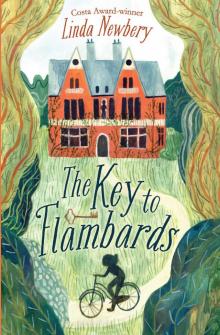 The Key to Flambards
The Key to Flambards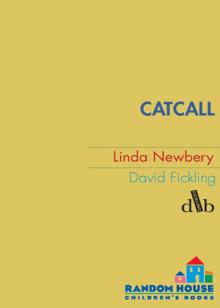 Catcall
Catcall Sisterland
Sisterland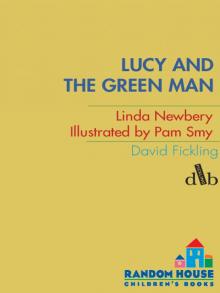 Lucy and the Green Man
Lucy and the Green Man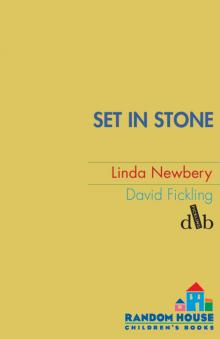 Set In Stone
Set In Stone Lob
Lob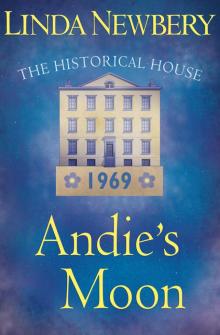 Andie's Moon
Andie's Moon The Shell House
The Shell House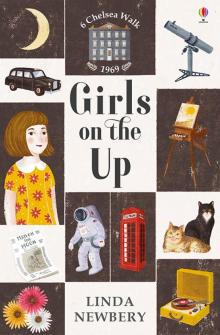 Girls on the Up
Girls on the Up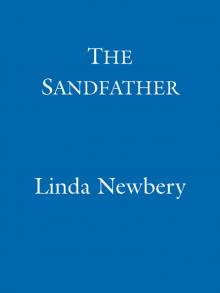 The Sandfather
The Sandfather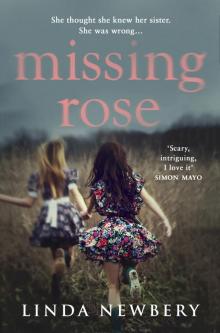 Missing Rose
Missing Rose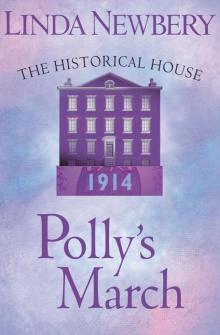 Polly's March
Polly's March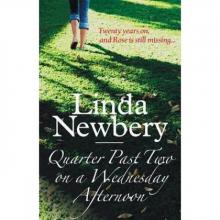 Quarter Past Two on a Wednesday Afternoon
Quarter Past Two on a Wednesday Afternoon Flightsend
Flightsend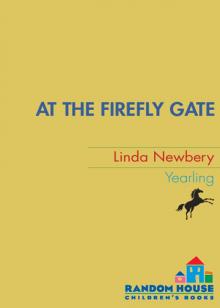 At the Firefly Gate
At the Firefly Gate